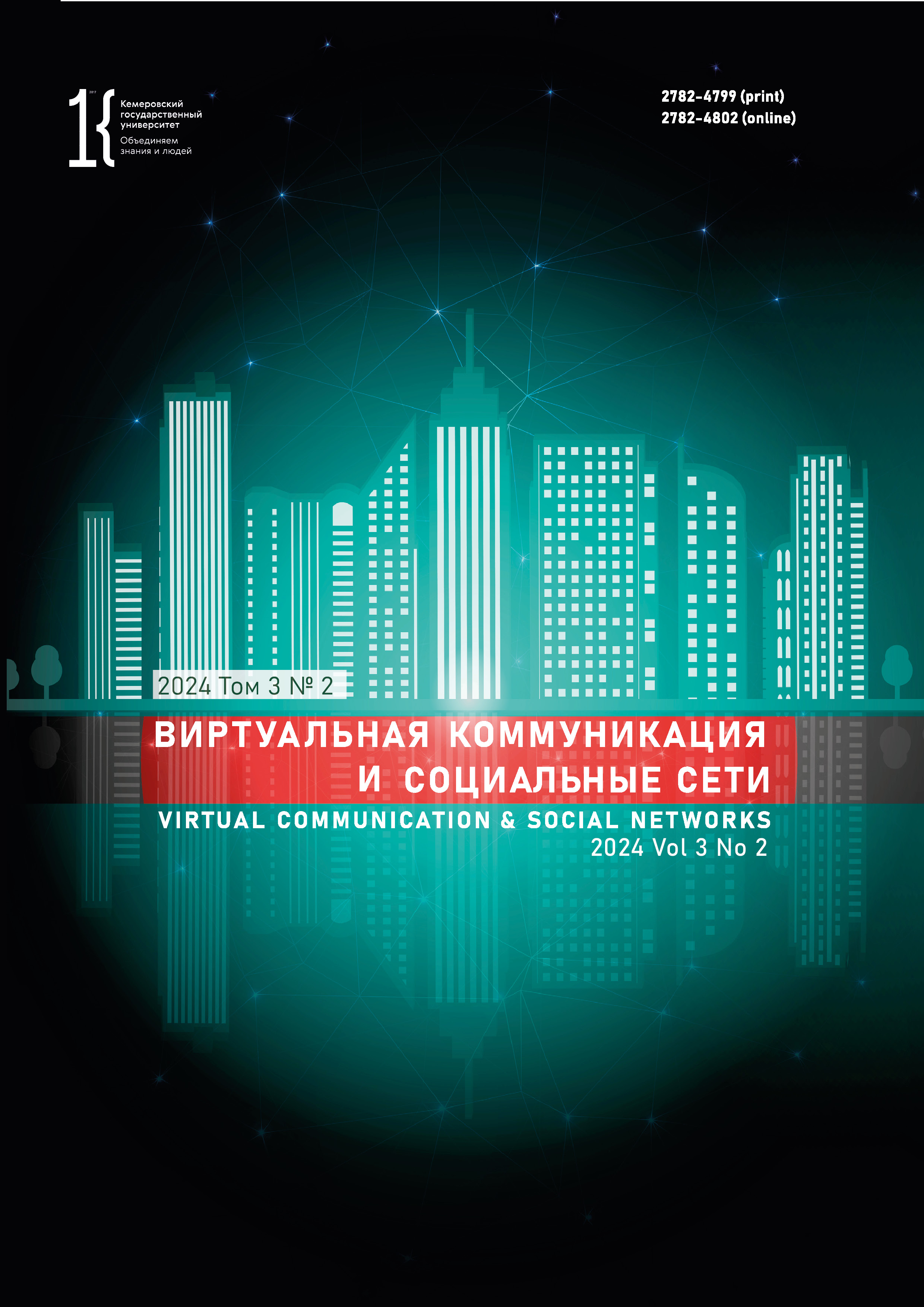Irkutsk, Russian Federation
The author studied idioms with the meaning of appearance defects in digital beauty discourse using hashtagging is a new phraseologizing tool. New idioms with this semantics reflect the transformation of the linguistic worldview as they objectify the modern value attitudes. The high frequency of these idioms indicates that the semantic code of appearance is of great importance: the induced cultivation of appearance defects motivates users to achieve an ideal beauty image. The analysis revealed the transformation of the linguistic worldview through phraseological innovations that reflect the current value orientations. The paper also defines such terms as neophraseologisms, neophrasemes, phraseological neologisms, and phraseotransforms. The phraseological system follows the general trend of the rapid linguistic development caused by online discourse. Mass linguistic creativity, on the one hand, and global precedence, on the other, trigger many current processes in Russian society.
neophraseologism, neophrase, phraseological neologism, phraseotransform, phraseologism, beauty industry, beauty discourse, social networks, hashtag, phraseologization, occasional expression
1. Varlashkina E. A. Meaningful of physical "I" in the structure of identity of patients of aesthetic surgery. Modern problems of science and education, 2014, (4). (In Russ.) URL: https://science-education.ru/ru/article/view?id=14068 (accessed 17 Mar 2024). https://elibrary.ru/strtin
2. Golub I. B. Stylistics of the Russian language. Moscow: Ayris-Press, 2010, 441. (In Russ.)
3. Ermolaeva M. V. New idioms realizing gender 's pragmatic aims. Herald of the Chelyabinsk State Academy of Culture and Arts, 2008, (3): 32–37. (In Russ.) https://elibrary.ru/item.asp?id=11529355
4. Zhukov V. P., Zhukov A. V. Russian phraseology. 2nd ed. Moscow: Vyssh. sh., 2006, 408. (In Russ.) https://elibrary.ru/jshsph
5. Il'ina I. A. Hashtag as linguistic phenomenon. Uchenye zapiski St. Petersburg University of Management Technologies and Economics, 2016, (3): 41–44. (In Russ.) https://elibrary.ru/xwrqfv
6. Kovaleva A. V. Modern everyday realities in neo-phraseological locutions. Litera, 2021, (11): 196–202. (In Russ.) https://doi.org/10.25136/2409-8698.2021.11.34340
7. Markevich V. I. The national-cultural identity of phraseological units with a component-anthroponym in the Russian, Belarusian and German languages. Philology. Theory & Practice, 2014, (7-2): 136–139. (In Russ.) https://elibrary.ru/sekptd
8. Maslova V. A. Cultural and national specificity of Russian phraseology. Cultural layers in phraseological units and discursive practices, ed. Teliya V. N. Moscow: YaSK, 2004, 69–76. (In Russ.) https://elibrary.ru/xhgoqd
9. Mityagina V. A., Sidorova I. G. The genres of personal internet discourse: Communicative explications of a person. Speech Genres, 2016, (2): 106–115. (In Russ.) https://doi.org/10.18500/2311-0740-2016-2-14-106-115
10. Mokienko V. M., Nikitina T. G. Axiology of neophrasemes and phraseotransformations in lexicographic interpretation. Voprosy Leksikografii, 2022, (25): 81–107. (In Russ.) https://doi.org/10.17223/22274200/25/4
11. Rodina A. A. Proper names as part of phraseological units. Science of the XXI century: problems, searches, and solutions: Proc. XL Sci.-Prac. Conf., Miass, 22 Apr 2016. Miass: Geotur, 2016, 334–340. (In Russ.) https://elibrary.ru/wgovqf
12. Sknarev D. S. Neophraseologism as a means of creating the image in advertising discourse. Modern problems of science and education, 2014, (4). (In Russ.) URL: https://science-education.ru/ru/article/view?id=14127 (accessed 17 Mar 2024). https://elibrary.ru/strrtj
13. Skuratov I. V. Delimitation of phraseological neologisms and unique authors' formations in modern Russian and French languages. Verhnevolzhski philological bulletin, 2022, (2): 195–201. (In Russ.) https://doi.org/10.20323/2499-9679-2022-2-29-195-201
14. Tarhanova P. M., Kholmogorova A. B. Social and psychological factors of physical perfectionism and body dissatisfaction. Psychological science and education, 2011, 16(5): 52–60. (In Russ.) https://elibrary.ru/oybgib
15. Tataurova S. S. Current problems in body image research. Psychological Bulletin of the Ural State University. 2009, (8): 142–154. (In Russ.) https://elibrary.ru/vjtoyh
16. Teliya V. N. Russian phraseology. Semantic, pragmatic, and linguacultural aspects. Moscow: Yaz. rus. kultury, 1996, 288. (In Russ.)
17. Chernova O. E., Osipova A. A., Franchuk O. V. Pasta always costs the same (new winged units their sources in the modern Russian language). Philology and culture, 2020, (2): 115–121. (In Russ.) https://doi.org/10.26907/2074-0239-2020-60-2-115-121
18. Chernova O. E., Osipova A. A., Pozdnyakova N. V. "World will never be same": Phraseologisms during coronavirus pandemic. Dauchnyi dialog, 2021, (5): 140–153. (In Russ.) https://doi.org/10.24224/2227-1295-2021-5-140-153
19. Shansky N. M. Phraseology of the modern Russian language. Moscow: LENAND, 2015, 272. (In Russ.)
20. Shchurina Y. V. Communication and gaming potential of hashtags. Cherepovets State University Bulletin, 2015, (8): 100–104. (In Russ.) https://elibrary.ru/vavmmd















